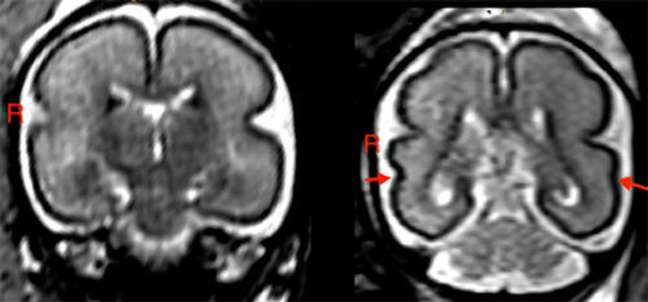Research from Austria has identified significant changes in the brain development of fetuses whose mothers consumed the substance.
Today, there is already a great awareness among women that, since expose the baby to alcohol during pregnancythere is the possibility of developing fetal alcohol syndrome – which can lead to learning difficulties, behavior problems or speech and language delays in the baby in the future.

But what many mothers don’t know is that these ailments are not only linked to the ingestion of high doses of the substance during pregnancy. A new Austrian study reveals it alcohol consumption during this period, even in very small quantities, has the same capacity to alter and delay the child’s brain development.
Well, the researchers concluded that a single glass of wine, consumed once a week, it is also harmful to the fetus. The results of the work (carried out at the Medical University of Vienna, Austria) will be presented later this month at the annual meeting of the Radiological Society of North America.
There were 24 pregnant women, between 22 and 36 weeks pregnant, who participated in the study. Of these, 17 rarely ingested alcohol: some were exposed to less than one drink per week, others had one to four drinks over the period. Scientists were able to detect significant brain changes even in fetuses with low levels of exposure to the substance.
How the brain was affected
Analyzes were performed using magnetic resonance imaging. In children with exposure to alcohol (even in small amounts), fetal developmental maturity was significantly lower compared to that of the age-matched control group. Also, the part of the brain related to social cognition and language perception was shallower.
“We identified the major changes in the temporal brain region and right superior sulcus (STS). We know that this region, especially the formation of the STS, has a major influence on language development in childhood,” Gregor reported. Kasprian, professor at the Medical University of Vienna in a statement.

According to the researchers, the impact on children’s brain development may be related to a delay in the myelination process, which is responsible for transmitting information between the nervous system and thus linked to important milestones such as rolling over, crawling and language processing.
The formation of folds in the cerebral cortex, known as gyrification, was also less evident in children exposed to alcohol. They allow for an increase in cognitive performance. Therefore, when gimification is reduced, functionality is also reduced.
🇧🇷 It’s not clear how these structural changes will affect these babies’ brain development after birth.🇧🇷 To evaluate it accurately, we have to wait for the children who have been examined to get a little older,” said Patric Kienast, a student at the university.
However, scientists have realized that observed changes in brain development contribute to cognitive and behavioral difficulties that can occur during childhood.
🇧🇷 Unfortunately, many pregnant women are unaware of the influence of alcohol during pregnancy. So it’s our responsibility to not only do the research, but to actively educate the public about the effects on the child,” concludes Professor Kasprian.
🇧🇷The best content in your email for free. Choose your favorite Terra newsletter. Click here!
Source: Terra
Camila Luna is a writer at Gossipify, where she covers the latest movies and television series. With a passion for all things entertainment, Camila brings her unique perspective to her writing and offers readers an inside look at the industry. Camila is a graduate from the University of California, Los Angeles (UCLA) with a degree in English and is also a avid movie watcher.






